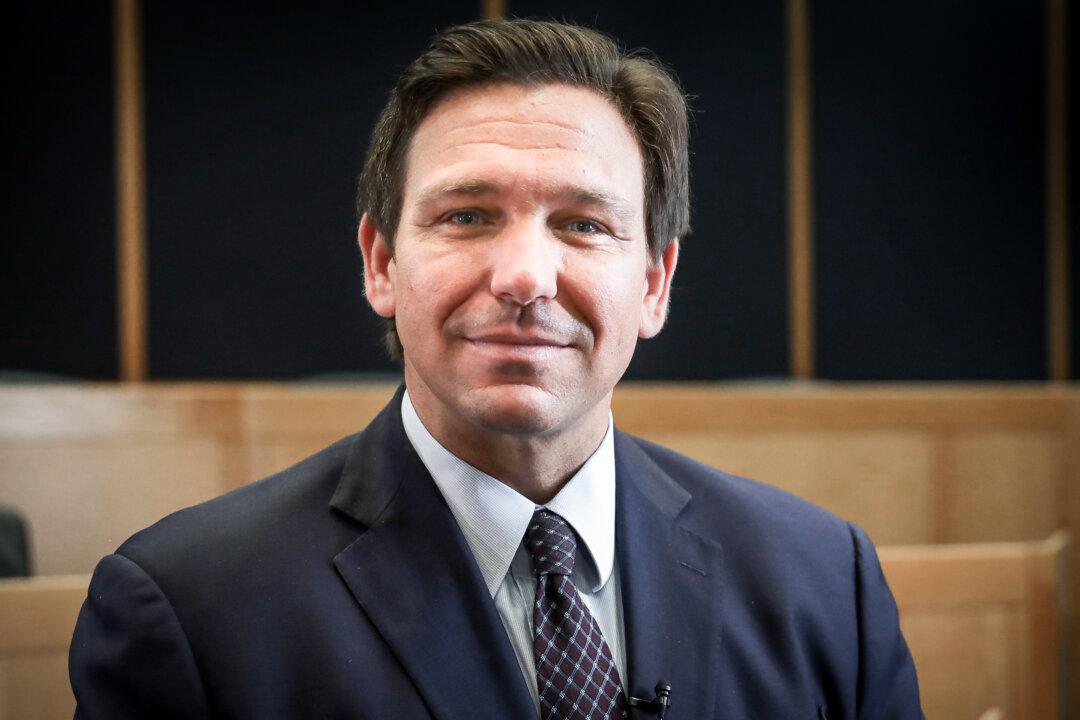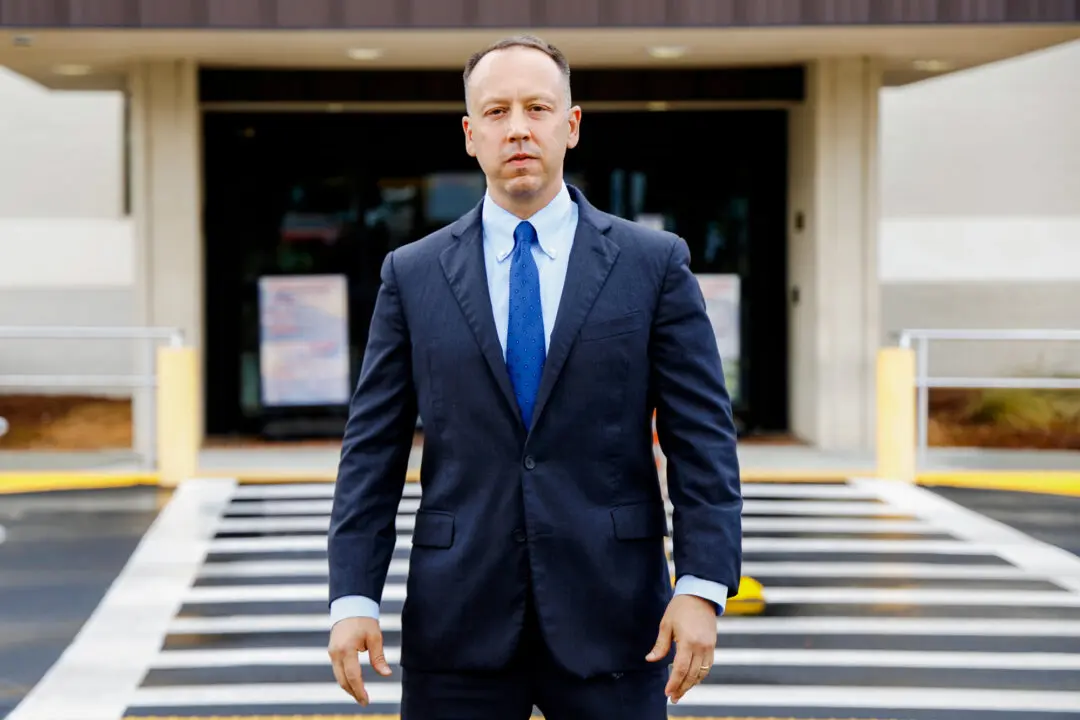TALLAHASSEE, Florida—While much of the country bundles up around the holidays, Floridians revel in bragging about their “T-shirt weather.”
It’s not unusual for December temperatures to hit the 80s in the Sunshine State. But what stands out as strange is the number of natives sporting short-sleeve shirts emblazoned with images of their governor, Ron DeSantis.





